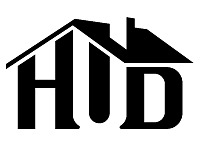 In part one we went through some non-price related items to consider when making your offer and then in part two we talked a little about how much you should offer. In the last thrilling installment, we’ll look at a few other variables for your offer price.
In part one we went through some non-price related items to consider when making your offer and then in part two we talked a little about how much you should offer. In the last thrilling installment, we’ll look at a few other variables for your offer price.
Who owns this joint?
There are a few possibilities here: 1. Private individual, 2. Estate, 3. HUD, 4. Short Sale, 5. Bank (AKA REO)
Why does it matter? Just trust me, it does.
A private seller is probably going to have an emotional investment in this house. There may be a wall with their kids’ growth chart on it. If you offer significantly less than the asking price, they will might take it personally and then won’t sell it to you at any price. I’ve seen it happen. A private investor probably didn’t watch his kids grow up in the house (unless he’s an investor with my kind of home improvement schedule) but they may have put their blood, sweat and tears into it.
If this is part of an estate, you may be dealing with the person whose growth chart is on that wall. They may just want to get rid of the place or they may not care that much at all or they may take this transaction very, very seriously. This is where angels fear to tread.
 For HUD owned properties it doesn’t matter what you’ve determined that it’s objectively worth. HUD has it’s own ideas about what it will accept. If your offer doesn’t measure up, it won’t get accepted. Don’t bother making an offer significantly below the asking price. You’re just wasting your time. Don’t like the price today? Wait until tomorrow, it might be lower.
For HUD owned properties it doesn’t matter what you’ve determined that it’s objectively worth. HUD has it’s own ideas about what it will accept. If your offer doesn’t measure up, it won’t get accepted. Don’t bother making an offer significantly below the asking price. You’re just wasting your time. Don’t like the price today? Wait until tomorrow, it might be lower.
There really aren’t that many short sales in these here parts (although they are getting more prevalent) so I’m not going to spend much time here. Suffice it to say that the price listed may have little or nothing to do with a price that might actually be accepted and I’ll leave it at that. Offer what it’s worth to you, no more, no less. And then prepare yourself for a long, long, wait for an answer.
Foreclosure/Bank owned/REO/Real Estate Owned (I’m letting you in on a little real estate slang that I don’t completely understand myself – isn’t all real estate owned by someone?). Anyhoo, make an offer, any offer. It might get rejected, it might get countered or it might just get accepted. Do what you will without worrying about an emotional reaction.
 How much do you love it?
How much do you love it?
Ah, there’s the rub. And probably the most important factor of all. What’s it worth to YOU?
So what in the &*%$ am I supposed to offer these people (whomever they may be)?
That’s where a good Realtor (like me!) comes in. You have to take all of these factors into account, compute the algorithms, carry the 4, plug that result into excel, and then you’ll have your offer price.
Doesn’t matter if you’re at step 1 or step 9, drop me a line and I’ll help you find a great house and then I’ll help you figure out what you should offer. And then help you negotiate your financing, the title work, the inspections, the appraisal, the…you get the idea.
 There are lots of variables to consider when making an offer. That’s where a good Realtor (like me!) comes into play. We already talked about a few of them and now we’re homing in (no pun intended) on the grand-daddy of all variables: PRICE
There are lots of variables to consider when making an offer. That’s where a good Realtor (like me!) comes into play. We already talked about a few of them and now we’re homing in (no pun intended) on the grand-daddy of all variables: PRICE the toilet?
the toilet?